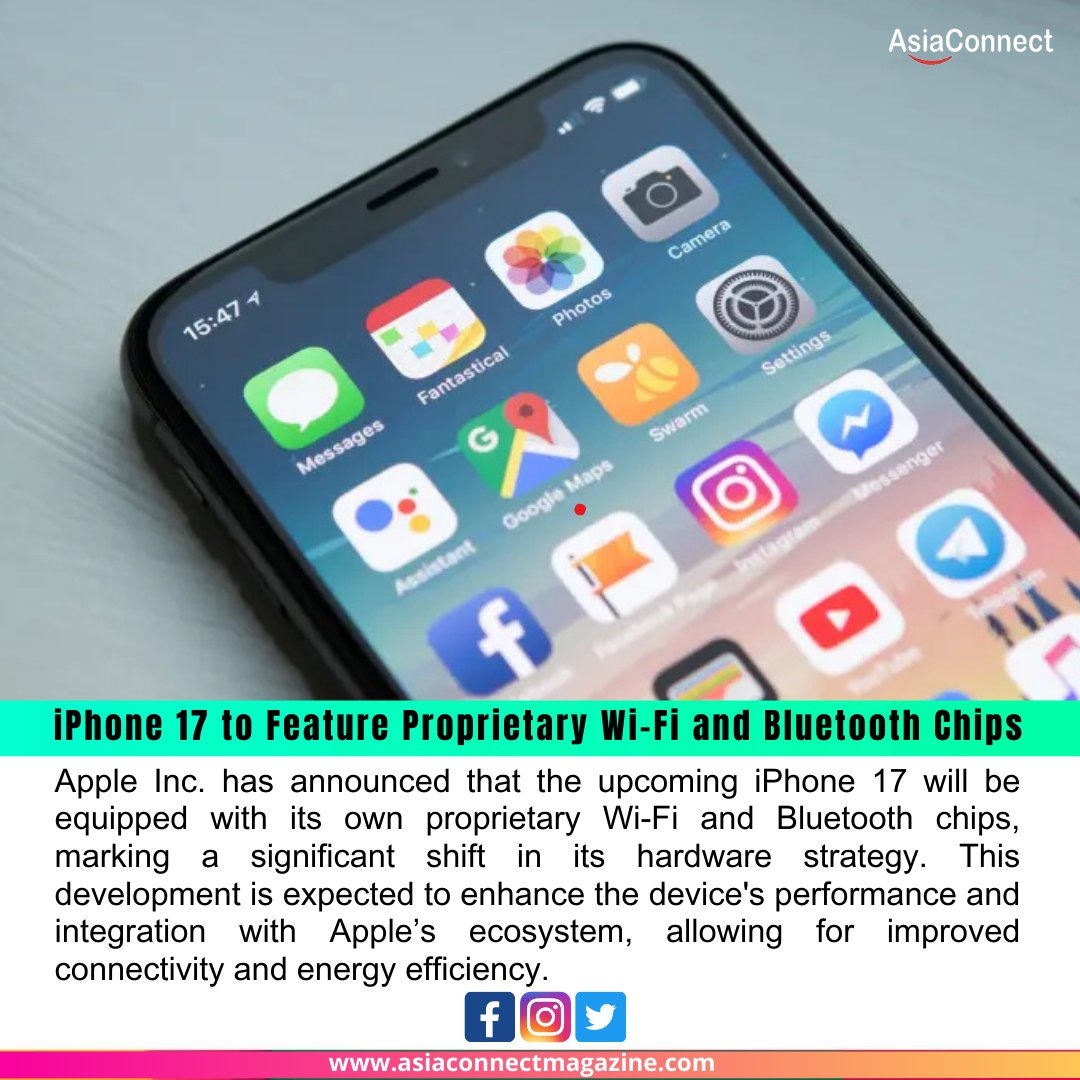Apple Inc. has announced that the upcoming iPhone 17 will be equipped with its own proprietary Wi-Fi and Bluetooth chips, marking a significant shift in its hardware strategy. This development is expected to enhance the device’s performance and integration with Apple’s ecosystem, allowing for improved connectivity and energy efficiency.
Background
Historically, Apple has relied on third-party manufacturers for critical components such as Wi-Fi and Bluetooth chips. The transition to in-house developed chips aligns with Apple’s broader strategy of vertical integration, which aims to consolidate control over hardware and software, reduce dependency on suppliers, and potentially lower production costs in the long term.
Technical Specifications
The new Wi-Fi and Bluetooth chips are anticipated to support the latest standards in wireless communication. While specific technical details have yet to be disclosed, it is expected that the chips will enable support for Wi-Fi 6E or Wi-Fi 7, which offer higher data rates, increased capacity, and lower latency. Similarly, the Bluetooth chips will likely support the latest Bluetooth standards, which enhance connectivity capabilities and improve energy efficiency for connected devices.
Implications for Performance
By integrating its own Wi-Fi and Bluetooth chips, Apple aims to achieve several key performance improvements:
- Enhanced Integration: Custom chips can be optimized to work seamlessly with Apple’s operating systems, leading to better overall device performance and user experience.
- Improved Power Management: Proprietary chips can be designed to manage power more effectively, potentially extending battery life during wireless communication.
- Security Features: In-house development allows for tailored security enhancements, providing better protection against vulnerabilities that can arise from third-party components.
- Increased Innovation: Developing proprietary chips may facilitate more rapid innovation, enabling Apple to implement features that are tightly coupled with its software offerings.
Market Context
The decision to manufacture its own Wi-Fi and Bluetooth chips positions Apple favorably in the competitive smartphone market. Companies such as Samsung and Google have also pursued similar strategies, emphasizing the importance of integrated hardware and software solutions. By developing its own chips, Apple may also gain a competitive edge in performance and user satisfaction, which are critical factors in consumer purchasing decisions.
Future Prospects
The introduction of proprietary Wi-Fi and Bluetooth chips in the iPhone 17 is indicative of Apple’s long-term vision for its product ecosystem. This move could set the stage for further advancements in device interconnectivity and smart home integration, as Apple continues to expand its ecosystem of products and services.
Conclusion
The iPhone 17’s integration of proprietary Wi-Fi and Bluetooth chips represents a strategic shift for Apple, emphasizing the company’s commitment to innovation and vertical integration. As consumers increasingly demand higher performance and better connectivity in their devices, Apple’s move to control more of its hardware production may enhance its competitive positioning in the smartphone market. The upcoming launch is anticipated to provide insights into the potential benefits of this strategic transition.





